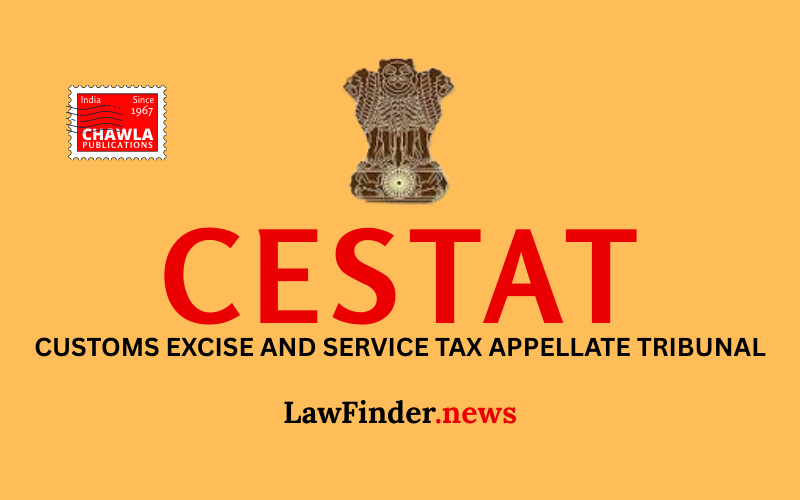CESTAT New Delhi Principal Bench Rules Revenue-Sharing Agreements Not Subject to 'Renting of Immovable Property' Tax
In a significant judgment, the Customs Excise and Service Tax Appellate Tribunal (CESTAT) New Delhi Principal Bench has quashed the service tax demand against M/s. Indian Railway Catering and Tourism Corporation Ltd. (IRCTC). The tribunal ruled that revenue-sharing arrangements between IRCTC and private licensees for operating Food Plazas at railway stations do not constitute 'Renting of Immovable Property Service' under the Finance Act, 1994.
The case arose from allegations that IRCTC, a Government of India enterprise, failed to discharge service tax for license fees received from private contractors operating catering facilities at railway stations. The Commissioner of Service Tax argued that these fees amounted to renting of immovable property, subject to service tax since June 1, 2007.
However, the tribunal, comprising Ms. Binu Tamta (Member Judicial) and Mr. P.V. Subba Rao (Member Technical), found that the agreements between IRCTC and licensees were fundamentally business transactions aimed at providing passenger amenities, with any space usage being ancillary. The tribunal emphasized the absence of a service provider-service recipient relationship and fixed rent in these agreements, thus negating the claim of service tax applicability under the 'Renting of Immovable Property Service.'
The judgment cited the dominant intent of the agreements as facilitating passenger amenities rather than renting property. IRCTC's revenue-sharing model, based on a percentage of sales turnover, was deemed a business arrangement without the fixed rent characteristic of typical property renting.
Additionally, the tribunal addressed the issue of the extended period of limitation invoked by the Commissioner of Service Tax. It was noted that prior show cause notices had already brought the relevant facts to the authorities' attention, thereby invalidating the extended limitation period.
The decision comes as a relief to IRCTC, which had contended that its activities were not taxable under the disputed service category. The tribunal's ruling underscores the nuanced interpretation of service tax laws, particularly in cases involving public utility services and revenue-sharing models.
Bottom Line:
Revenue-sharing arrangements for the operation and management of facilities (such as Food Plazas) at railway stations do not amount to "Renting of Immovable Property" under Section 65(90a) read with Section 65(105)(zzzz) of the Finance Act, 1994, as they lack the essential elements of service provider-service recipient relationship and fixed rent. Such agreements are considered business transactions, not taxable under the Renting of Immovable Property Service.
Statutory provision(s):- Finance Act, 1994 Sections 73(1), 65(90a) and 65(105)(zzzz)
This landmark judgment may set a precedent for similar cases where the nature of agreements and the intention of parties are pivotal in determining tax liabilities. The ruling highlights the importance of understanding the essence of contractual arrangements beyond their formal titles.




